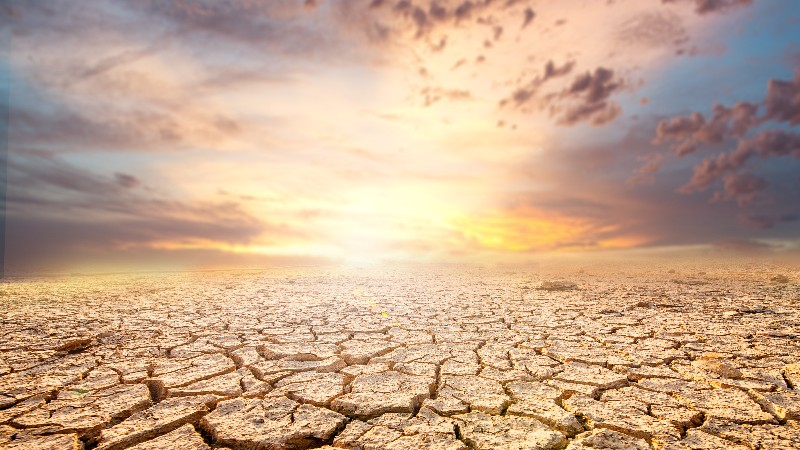In The Global Risks Report 2022 published by the World Economic Forum, the priority issues focused on are climate change, cyber-security, international migration, and competition in space. Representing the views of nearly 1,000 global experts and leaders who responded to WEF’s Global Risks Perception Survey, the report says that fostering international cooperation is crucial to addressing risks in these areas.
In this 17th edition of the WEF global risks report, the authors stress that Covid-19 and its economic and social consequences continue to pose a critical threat to the world and that vaccine inequality and the resulting uneven economic recovery are at risk of worsening social fractures and geopolitical tensions. The report goes on to say “In the poorest 52 countries– home to 20% of the world’s people– only 6% of the population had been vaccinated at the time of writing. By 2024, developing economies (excluding China) will have fallen 5.5% below their pre-pandemic expected GDP growth, while advanced economies will have surpassed it by 0.9%–widening the global income gap. The resulting global divergence will create tensions–within and across borders–that risk worsening the pandemic’s cascading impacts and complicating the coordination needed to tackle common challenges.”
Disillusionment and despair
Published every year since 2006, the findings and conclusions of the 2022 edition of The Global Risks Report reflect the results of WEF’s Global Risks Perception Survey of about a thousand global experts and leaders. When survey respondents were asked to express their view of the most recent two years, the great majority cited societal risks such as “social cohesion erosion”, “livelihood crises”, and “mental health deterioration” as those that have worsened the most since the pandemic began. Only 16% of respondents reported feeling positive and optimistic about the outlook for the world and just 11% said they believed the global recovery will accelerate. The majority of respondents said they expected “the next three years to be characterized by either consistent volatility and multiple surprises or by fractured trajectories that will separate relative winners and losers.”
The severest risks
For the next five years, respondents again pointed to societal and environmental risks as the most concerning ones. However, over a 10- year horizon, the health of the planet dominated concerns: environmental risks are perceived to be the five most critical long-term threats to the world as well as the most potentially damaging to people and the planet, with “climate action failure”, “extreme weather”, and “biodiversity loss” ranking as the top three most severe risks. Respondents also cited “debt crises” and “geoeconomic confrontations” as among the most severe risks over the next 10 years. Other critical short and medium-term threats to the world according to survey respondents are technological risks such as “digital inequality” and “cybersecurity failure”, however these fall back in the rankings towards the long term and none are said to be among the most potentially severe.
Inequalities are growing
The WEF report draws attention to the persistence of economic challenges arising from the pandemic. Saying that the outlook remains weak, the report projects that the global economy will be 2.3% smaller by 2024 than it would have been without the pandemic and points also to the emerging risks of rising commodity prices, inflation, and debt. According to respondents, health systems will continue to struggle in countries with low vaccination rates and this will have an impact on labor markets. Short-term domestic pressures will make it harder for governments to focus on long-term priorities and will hobble policies for dealing with global issues. In some countries, existing inequalities will become even greater. 51 million more people than was the case before the pandemic will be joining the ranks of those living in extreme poverty, further exacerbating social polarization risks. At the same time, domestic pressures will strengthen national-interest stances at the expense of international cooperation.
Increased cyber vulnerabilities
According to the report, malicious cyber activity is proliferating: in 2020 alone there was a 358% increase in malware attacks and a 435% increase in ransomware attacks. Attacks on large and strategic systems will inevitably result in higher costs. Risks such as disinformation, fraud, and lack of digital safety shake public confidence in digital systems. Greater cyberthreats may also thwart cooperation among countries unless governments coordinate efforts to control risks. As attacks become more severe and widespread, tensions between governments hit by cybercrime will rise, thus creating yet another trajectory that disrupts international cooperation.
Migration and refugees
An important chapter in the WEF global risk perceptions report is “Barriers to Migration”. 60% of survey respondents say they believe that international efforts to deal with involuntary migration and refugees have not even begun or else that they are just getting started. Considering that there were over 34 million displaced people in 2020, this is a very serious problem indeed. In many countries, the effects of the pandemic have increased economic protectionism and given rise to new labor market dynamics that result in higher barriers to entry for migrants in search of a new and better life.
Risks in space
The title of the fifth chapter of the report is “Crowding and Competition in Space”. The increase in space-related undertakings in recent years may also give rise to risks stemming from the militarization and weaponization of space as a commonly-owned resource. The presence of a greater number and range of actors operating in space could generate frictions if space exploration and exploitation are not responsibly managed. Greater space activity could also lead to unknown environmental effects or to higher costs for public goods such as weather monitoring or climate change surveillance. The upshot is that space exploration and exploitation need to be responsibly managed so as to benefit all humanity.
